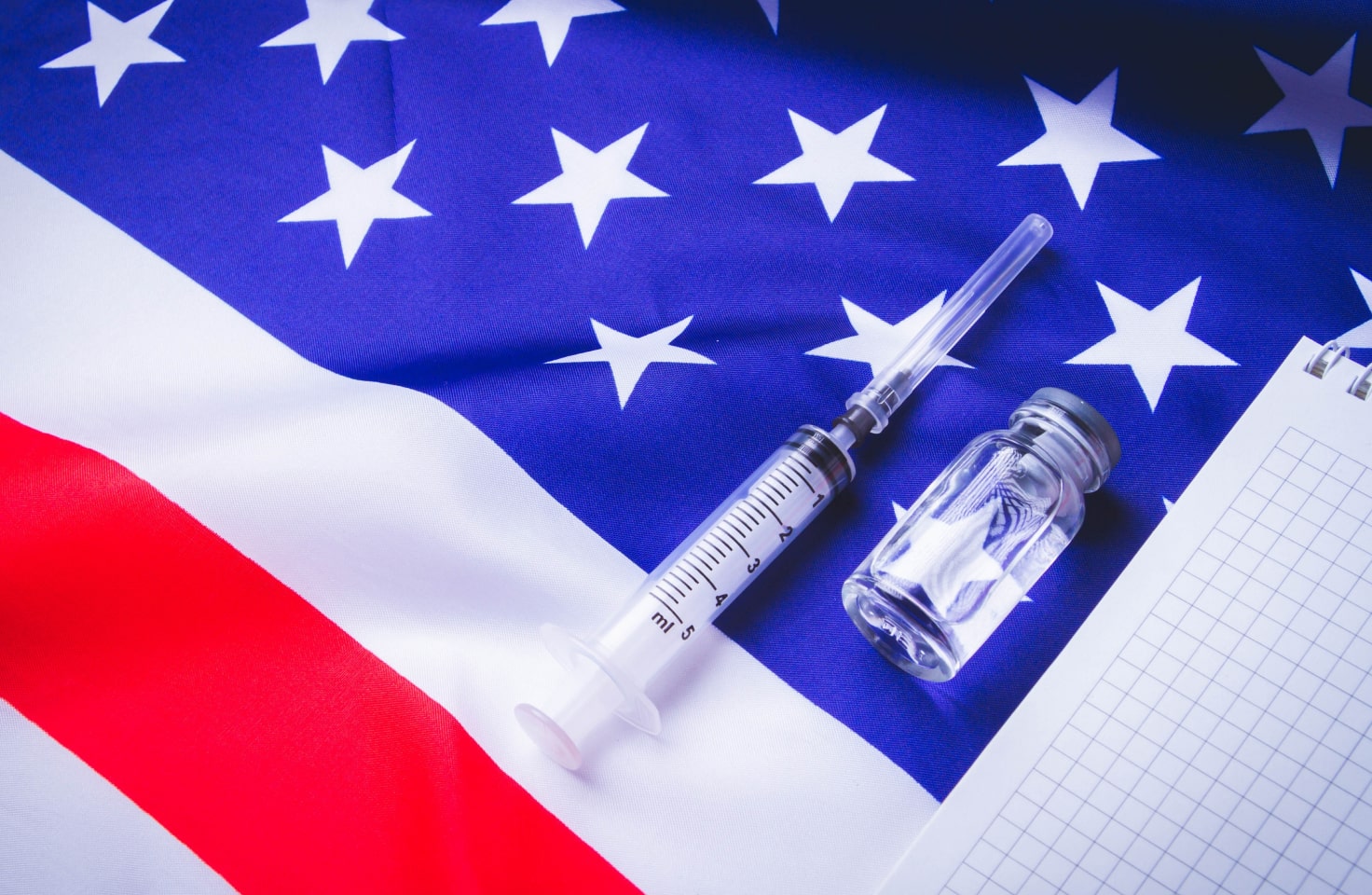T1D Guide
T1D Strong News
Personal Stories
Resources
T1D Misdiagnosis
T1D Early Detection
Research/Clinical Trials
Diabetes and Your Weight: Helpful Tips to Manage the Risks
The twin epidemics— obesity and diabetes are increasing worldwide. According to a report from NPR, cases are growing among young adults. A recent Journal of the American Medical Association study cited obesity shot up from 32.7% to 40.9% from 2009 to 2020. Obesity is a leading risk factor for developing type 2 diabetes.

Editor’s Note: This article is for informational purposes only and does not intend to substitute professional medical advice, diagnosis or treatment.
Both obesity and type 2 diabetes are metabolic disorders in which the body struggles to break down food into energy. Excess weight may limit the amount of insulin distributed, or the tissues may become less sensitive to insulin, leading to type 2 diabetes (T2D).
While many have turned to promising innovations like GLP-1 medications, these drugs can be expensive and in demand. Unfortunately, the U.S. healthcare industry is a broken system that allows the pharmaceutical industry to capitalize on these growing numbers.
The fact remains that over 38 million people in the U.S. have T2D, two million have type 1 diabetes (T1D), and over 100 million people in America battle obesity. Also, though it’s not fully understood, there is a surge in T1D cases among children and adults. Moreover, if current trends remain, adding to the crisis of childhood obesity, these individuals face severe consequences like heart disease, kidney disease and vision loss, leaving the healthcare system with an astronomical burden.
Read on to learn about the different types of diabetes and tips for losing weight and keeping it off for good.

Diabetes With and Without Obesity
For a long time, it seemed the terms ‘diabetes and obesity’ were interchangeable, but we know that though they are linked, they are not the same disease, especially when referring to type 1 diabetes.
Different Types of Diabetes
The two types of diabetes, most commonly known (T1D and T2D), have very different origins. Also, the National Institutes of Health (NIH) found that type 1 diabetes is often misdiagnosed as type 2 diabetes, resulting in inadequate treatment and dangerous side effects, namely diabetic ketoacidosis (DKA).
Type 1 Diabetes
Type 1 diabetes is a chronic autoimmune disease that happens when the body mistakenly attacks the insulin-producing beta cells in the pancreas.
Excess weight is not a possible cause for T1D. The contributing risks include genetics and environmental factors. In fact, most individuals lose weight upon a T1D diagnosis.
Afterwards, most T1Ds stay in the average body mass index (BMI) range. BMI evaluates body fat based on a person’s weight and height.

Type 2 Diabetes
The most common type of diabetes is type 2, which affects over 90% of individuals, compared to T1D with only 5-10%. The main difference between the two diseases is that type 2 diabetes patients may still produce insulin, but the body’s cells become resistant.
Your Weight and Diabetes
Your weight does indeed play a role in your health.
Carrying extra pounds can lead to high blood pressure, high blood glucose levels, insulin resistance, heart disease, and cardiovascular disease.
Some frequent questions people have about diabetes include, ‘Which types of diabetes are not associated with obesity, and can skinny people get diabetes?’ As genetics plays a decisive factor in diagnosis—underweight, skinny individuals still get type 1 and type 2 diabetes.
Though weight is not an issue with T1D, it can be with T2D. The risk factors for type 1 diabetes include genetics and environmental triggers. While there is no cure for T1D, type 2 diabetes can be reversed in some cases by modifying healthy lifestyle choices.

Type 2 Diabetes Risk Factors Include:
- Genetics. The American Diabetes Association (ADA) cites that “First-degree relatives of people with T2D are about three times more likely to develop the disease than those without a family history.”
- Age: The older you are, the higher your risk. Individuals over 40 or South Asian descendants over 25 should start screening for T2D.
- Ethnicity: Besides family history, ethnicity plays a role in T2D. Being South Asian, Chinese, African-Caribbean or Black African may increase chances.
- High blood pressure: High blood pressure can elevate the risk of T2D, which is why it’s important to monitor it. It also increases the risk of heart disease, strokes, vision loss and dementia.
- Diet: Eating a high-carbohydrate diet, sugary treats and drinks, and too many late-night snacks can increase your risk of T2D.
- Smoking: Smoking cigarettes causes inflammation and damages cells.
- Depression: Depression, anxiety, and a lack of sleep may increase the risk of T2D.
- Weight gain and Inactivity: A lack of physical activity, which causes weight gain—plays a substantial role in developing type 2 diabetes.
Important to Know: Certain conditions like prediabetes, gestational diabetes, and polycystic ovary syndrome (PCOS) may contribute to T2D.
7 Tips to Combat Weight Gain
If you’ve unsuccessfully tried to lose weight, there may be an underlying health problem. Speak with a trained medical team to rule out some possible causes (metabolic syndrome, thyroid condition, polycystic ovarian syndrome, contraceptive use, surgery, certain diseases and medications).
Once cleared to follow a lifestyle change program, you can make tiny adjustments that produce significant results over time.
1) Get Moving.
A workout that builds muscle tissue while burning calories can help reduce the harmful fat levels in the body. Individuals should aim for over 75 minutes of cardio-healthy heart workouts a week. Find support through a walking buddy or join a class. Set realistic small goals to start.

2) Eat healthy.
Avoid processed foods, meats, refined carbs, and gluten. Focus on fiber-rich foods, proteins, fruits, and vegetables that will lower your risk of many diseases.
3) Stop eating when you’re full.
Check the Diabetes Food Plate and other guidelines and limit the food on your plate. Keep a food journal of what you eat and drink. Also, stop eating when you feel satisfied.
4) Limit alcohol consumption.
Not only does alcohol increase weight gain, but studies now show that it increases the risk of dementia and other cardiovascular diseases. Excessive drinking can lead to a build up of fats in the liver which may lead to alcoholic fatty liver disease (AFLD), also known as hepatic steatosis, the first stage of alcohol-related liver disease (ARLD).
5) Check blood pressure frequently.
Besides diabetes and obesity, high blood pressure or hypertension is linked to many health conditions like chronic kidney disease, thyroid problems, sleep apnea and certain tumors.
6) Get enough sleep.
Sleeping provides additional fat-burning benefits and increases overall mental and physical health. If you struggle to catch your Zzzz's check out our 8 Tips to Help You Sleep Better.
7) Quit smoking!
When you stop smoking, it can actually lead to weight loss for many people, including belly fat loss.
National Diabetes Prevention Program
The ADA created The National Diabetes Prevention Program (NDPP) in 2010 to help raise awareness of the growing obesity and diabetes endemics affecting millions. As the increased burden of prediabetes and T2D continues to grow, the global burden warrants a call to action. One proactive response is to expand diabetes screening.
Diabetes Testing
Diabetes testing has improved dramatically over the years, but there is still work to be done, especially with the misdiagnosis between T1D and T2D.
With more accessible and readily available testing, a simple blood sugar test can now monitor blood sugar levels and differentiate between the two types. Another type of diabetes test is the oral glucose tolerance test (OGTT), which measures how well the body processes large amounts of sugar.

As high blood glucose consistently runs the risk of long-term health consequences (chronic kidney disease), it’s important to check blood sugar levels frequently. The individual is given glucose, and the blood samples are taken afterward to evaluate how quickly the blood sugar is cleared from the blood.
Disparity in Underserved Communities
The ADA provides a systematic review that highlights interventions to improve diabetes treatment. A recent Diabetes Care publication cited interventions adapted for cultural and health literacy as vital in addressing the long-term implications of the health epidemics of diabetes and obesity.
Control What You Can
While excess weight contributes to many health issues, several factors make it even more difficult to moderate. High-gluten foods and other chemical additives, a lack of FDA protection, our sedentary lifestyles and addictions to electronic devices are all to blame.
Maintaining a normal weight, making smart food choices, increasing physical activity, and seeking emotional support can lower the major risk factor of getting T2D. As genetics may put you at a higher risk for both type 1 and type 2 diabetes, maintaining a healthy weight can help you avoid additional health problems and secondary illnesses.
Speak with your healthcare team or registered dietitian with concerns. Get screened now— as there are medications to push type 1 and 2 diabetes back for several years, reducing the risk of complications.


.webp)





.webp)
.jpg)
.jpeg)
.jpg)
.jpg)
.jpg)
.jpg)



.jpg)

.jpg)

.jpg)



.jpg)
.jpg)
.jpg)

.jpg)

.jpg)














.jpg)


.jpg)







.webp)












.webp)





















.webp)







.jpg)




.jpg)















.webp)